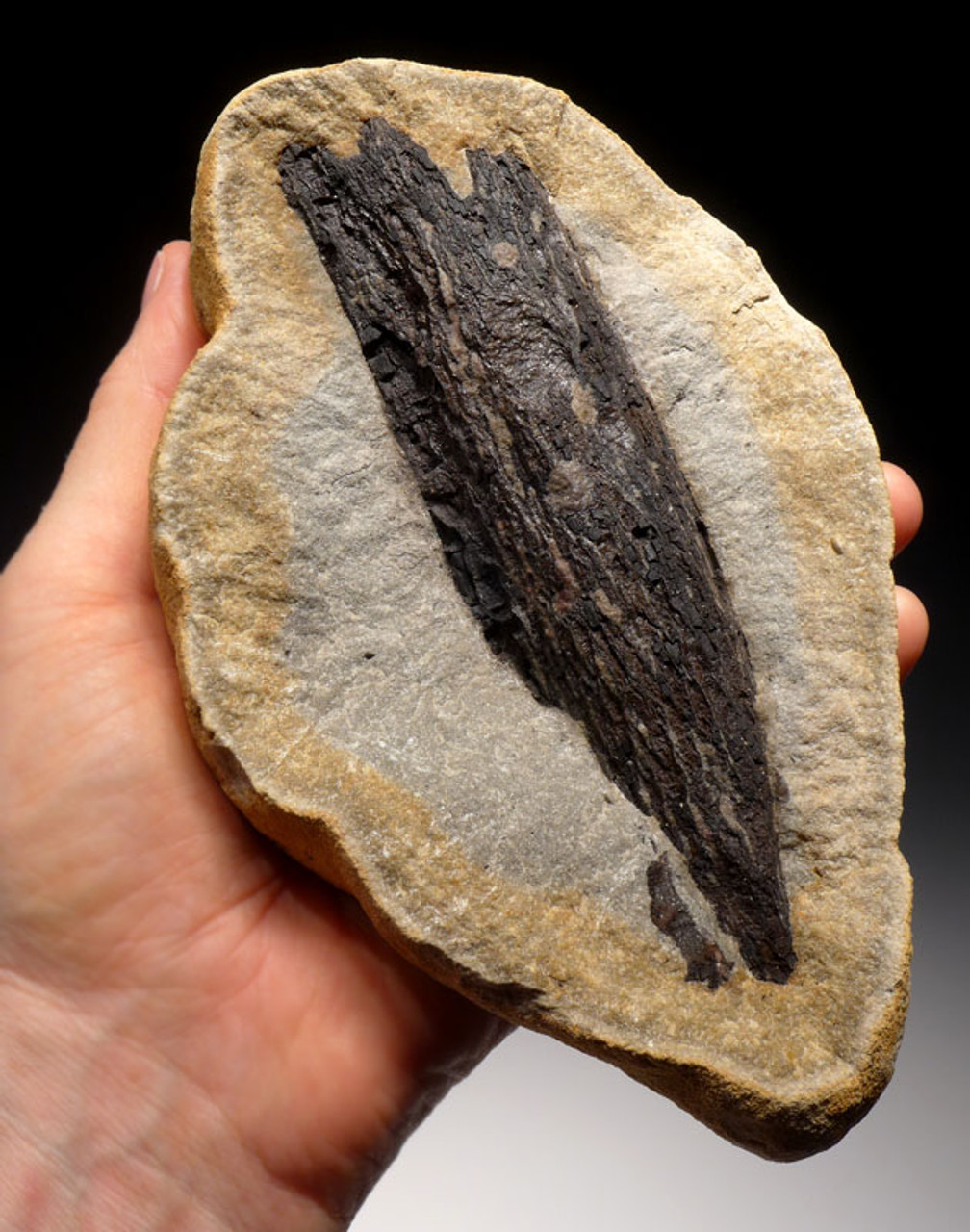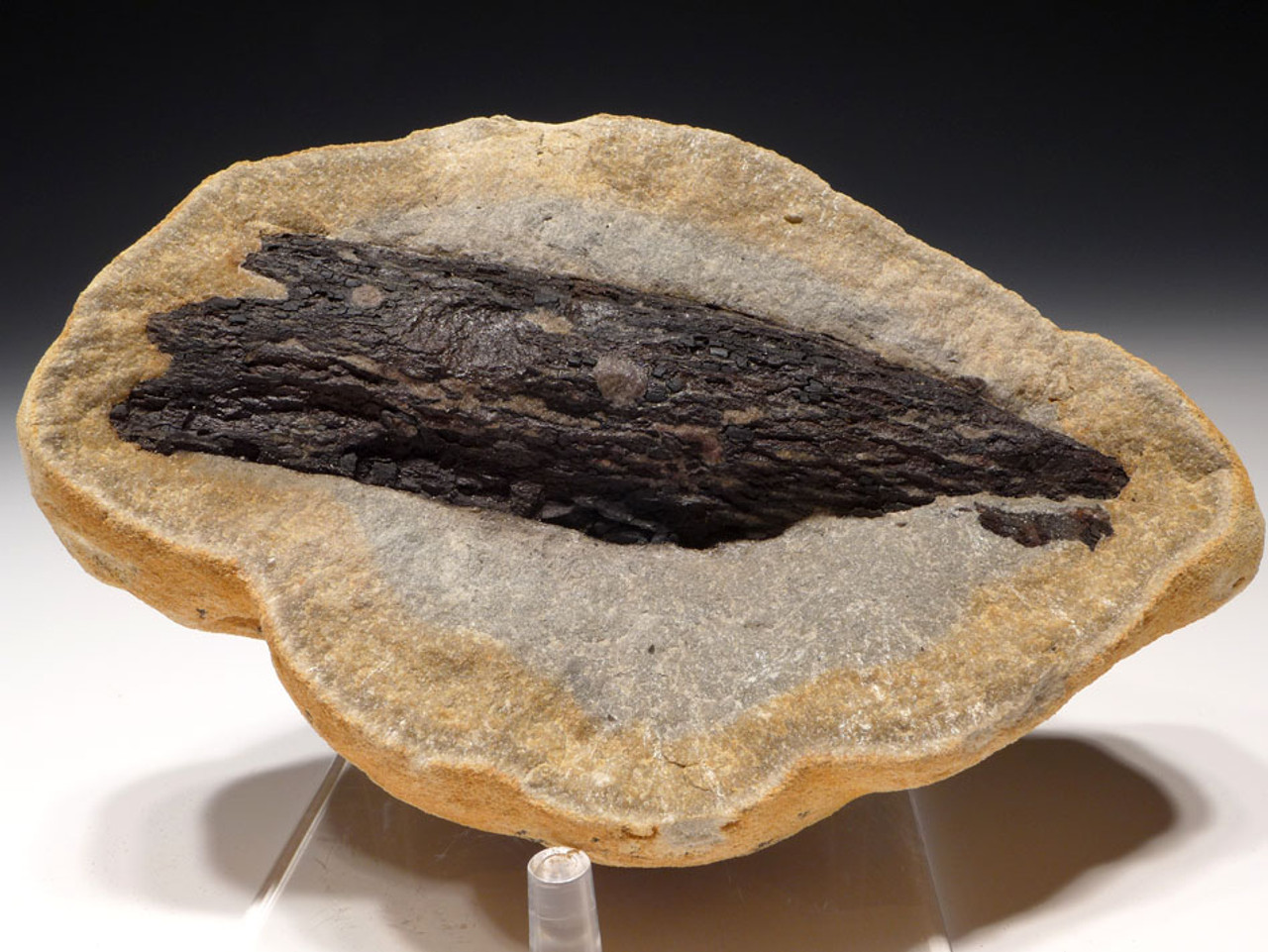Product Description
ITEM #
|
PL091
|
||
ID
|
Wood
|
||
FOUND
|
Steinhardt (Bad Kreuznach), Germany
|
||
AGE
|
LOWER OLIGOCENE: 30 million years ago
|
||
SIZE
|
7.25" x 4.5" concretion, wood is 5.75" long
|
||
CONDITION
|
NO REPAIR OR RESTORATION
|
||
NOTE
|
THE BLACK FOSSILS OF THE DEPOSIT HAVE BEEN
|
||
INCLUDES STAND - Actual Item - One Only
Comes with a certificate of authenticity / information sheet |
|||
SEE PHOTOS OF US COLLECTING THESE PINE CONE FOSSILS IN THE QUARRY
The region of Steinhardt, Germany is famous for its "Steinhardt peas", baritised sandstone concretions formed 30 million years ago around fossil plant material like leaves, pine cones and wood fragments. On very rare occasion, shark teeth can be found in the concretions. The concretions are split open with a hammer and inside, the fossil leaves are imprints while the wood and pine cones are fossilized in full, three-dimensional form. Natural pigments of reddish brown are dominant on the fossil. A deposit long ago exhausted, produced pine cone fossils in a stark contrasting natural black pigment. Much of the fossil deposit today is depleted of the really good fossil pine cones. Today, you have to split dozens and dozens of hard sandstone concretions to fine even one small, poorly preserved pine cone.
This specimen offered here is THE LARGEST and most impressive piece of fossil wood we have ever seen come from this deposit. What's more, it is BLACK which is a color that the mine FIRST produced long ago and since, ALL THE BLACK FOSSILS ARE DEPLETED. This specimen came from the quarry foreman's private collection and it was HIS BEST! NO FABRICATION. 100% AUTHENTIC WITH NATURAL COLOR.
The legend of the "Steinhardt peas" is an old German folktale and a rather interesting explanation for the discovery years ago of these highly unique fossil concretions. A long time ago, there was a rich but very mean, greedy farmer who lived in Steinhardt, Germany. One Spring, he was in his fields planting peas. Towards the end of the day as work was nearly finished, a poor, old beggar approached and politely asked for some peas for soup for his starving family. The mean farmer cursed and rejected the beggar, saying that he would rather his peas turn to stone before he would give any to a beggar. The old man turned away and sadly walked off. As the farmer went back to his work the sack of peas on his shoulder grew much heavier. As he placed the sack down, he noticed they all had turned to stone as well as the peas he had planted in the ground. Today in the fields, one can still find these odd rock concretions called Steinhardt Erbsen (peas).
 US DOLLAR
US DOLLAR
 EURO
EURO
 AUSTRALIAN DOLLAR
AUSTRALIAN DOLLAR
 CANADIAN DOLLAR
CANADIAN DOLLAR
 POUND STERLING
POUND STERLING
















